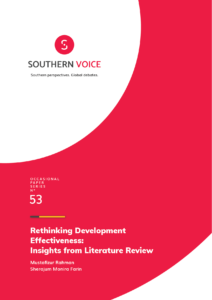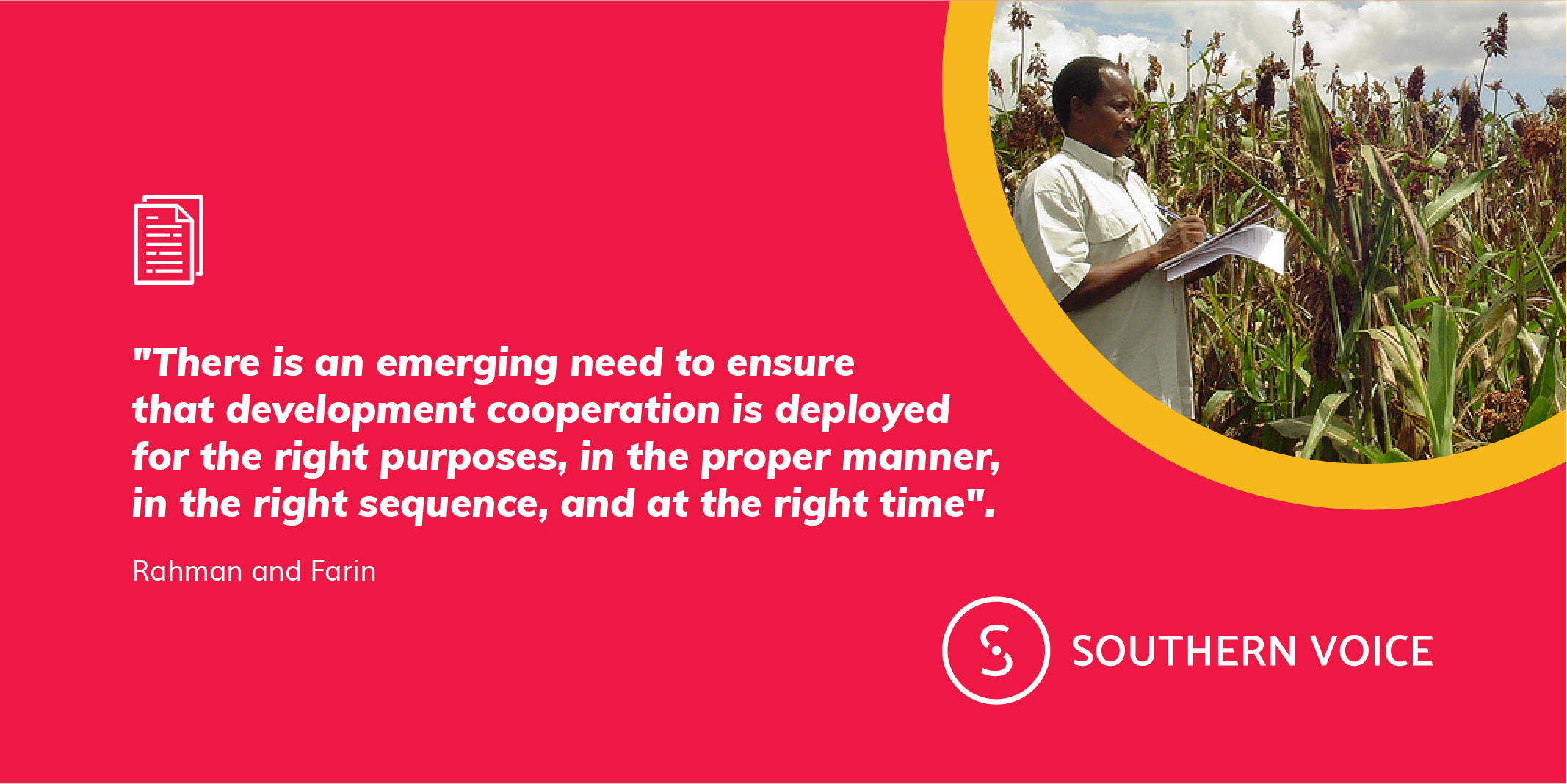Southern Voice is planning a programme to produce new knowledge, opportunities for diverse dialogues and agreements, on the future of…
Abstract
 Literature review testifies to a distinct shift in recent years in the discourse concerning development effectiveness. Factors contributing to the shift include the change in focus from aid to development cooperation, the involvement of new development actors and the new roles performed by traditional development actors, the diversity of financing instruments and modalities, and—most importantly—the new demands originating from the 2030 Agenda for Sustainable Development. Historical and analytical appraisal of these changing dynamics reveals a compelling case favouring the need for a rethinking of how development effectiveness should be defined under the emerging scenario. This rethinking should be underpinned by recipient counties’ perspectives, cognisance of changing country profiles and the country-specific contexts that inform the development effectiveness architecture, and the consequent need to develop new assessment frameworks. This study captures the state of knowledge in this connection and identifies knowledge gaps in assessing development effectiveness. Proper measurement of development effectiveness hinges on the quality of implementation (i.e., processes) and ensuring the delivery of expected developmental results (i.e., outputs, outcomes, and impacts), this is also key to ensuring accountability between and within recipient and partner countries. By drawing insights from the survey of relevant literature, the study develops a framework to help assess development effectiveness at the country level.
Literature review testifies to a distinct shift in recent years in the discourse concerning development effectiveness. Factors contributing to the shift include the change in focus from aid to development cooperation, the involvement of new development actors and the new roles performed by traditional development actors, the diversity of financing instruments and modalities, and—most importantly—the new demands originating from the 2030 Agenda for Sustainable Development. Historical and analytical appraisal of these changing dynamics reveals a compelling case favouring the need for a rethinking of how development effectiveness should be defined under the emerging scenario. This rethinking should be underpinned by recipient counties’ perspectives, cognisance of changing country profiles and the country-specific contexts that inform the development effectiveness architecture, and the consequent need to develop new assessment frameworks. This study captures the state of knowledge in this connection and identifies knowledge gaps in assessing development effectiveness. Proper measurement of development effectiveness hinges on the quality of implementation (i.e., processes) and ensuring the delivery of expected developmental results (i.e., outputs, outcomes, and impacts), this is also key to ensuring accountability between and within recipient and partner countries. By drawing insights from the survey of relevant literature, the study develops a framework to help assess development effectiveness at the country level.


